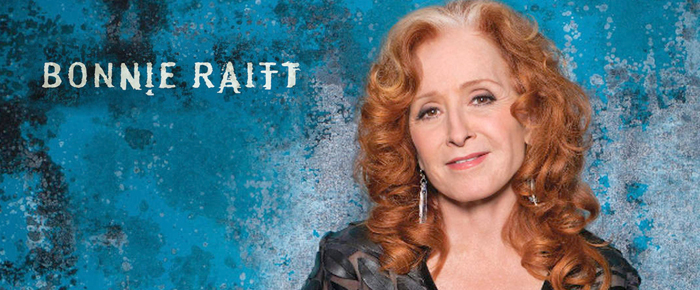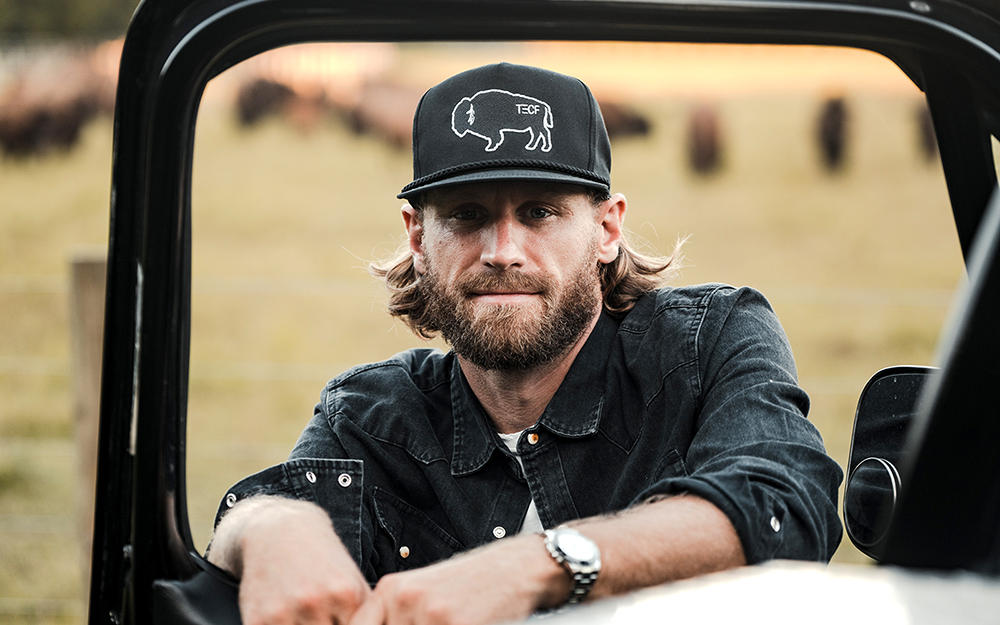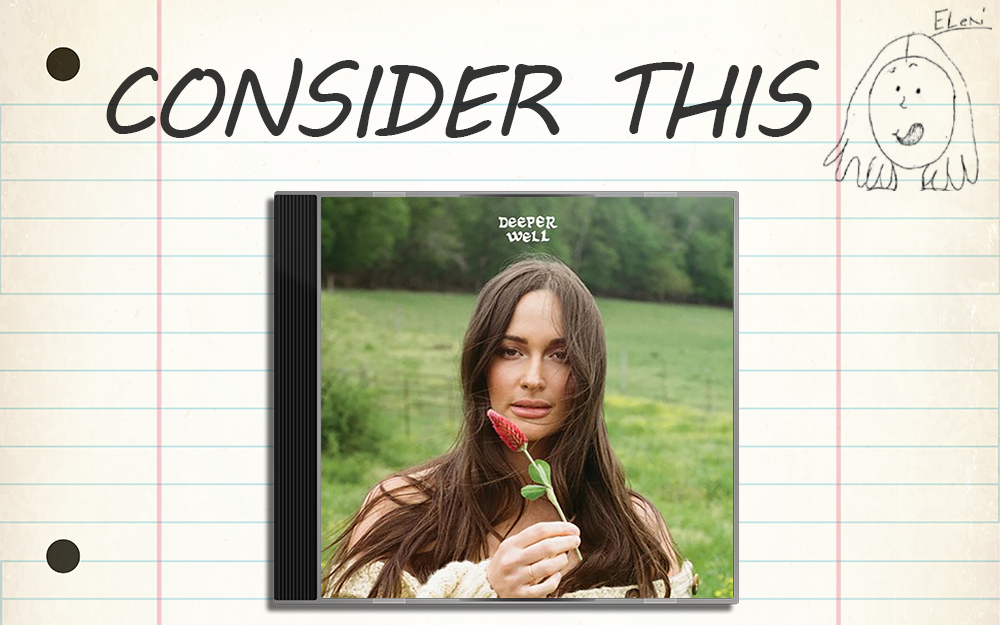
By Eleni P. Austin
When done correctly, Rock & Roll hits you in the solar plexus. It should make your loins go all tingly. It’s a visceral art demanding a physical response. In the early days, when it was called Rhythm & Blues or Race music, songs about Rocking and Rolling had one real connotation, sex.
Elvis Presley understood that, so did Tina Turner and Mick Jagger. Bonnie Raitt gets it too. She never had to twerk on the end of a foam finger or pop out a nipple to verify her sex appeal. Her sensuality is implicit in the way she uses her voice, or strums her guitar. That’s a talent, not a skill. It really can’t be taught.
Bonnie Raitt was born in 1949, into a show business family. Her mother, Majorie, was a talented singer and pianist and her dad, John, was a leading man on Broadway, originating the lead male roles in both “Carousel” and “The Pajama Game.” Bonnie and her brothers, David and Steven grew up in Los Angeles.
The whole family was musical, Bonnie studied piano and taught herself guitar as a kid. But she truly became a Blues aficionado when she began attending Radcliffe College in the late ‘60s.
As a habitue of Boston’s thriving coffee house scene, she saw Blues idols like Sippie Wallace, Son House and Mississippi Fred McDowell up close. Better still, they became friends and mentors. Soon she was playing those same clubs, re-interpreting Blues classics and revealing herself to be an accomplished slide/bottle-neck guitarist.
Pretty soon she took a sabbatical from college and was touring the Blues/Folk circuit, playing with her heroes. Initially, it seemed like a novelty, a flame-haired hippie girl singing the Blues and playing guitar like a Delta master, but Bonnie’s talent and tenacity paid off. Record labels came a ‘callin’ and she inked a deal with Warner Brothers.
Her eponymous debut arrived in 1971. Sales were modest, but Bonnie was immediately embraced by critics. That remained the blueprint for the next dozen years, on albums like Give It Up, Takin’ My Time, Streetlights, Homeplate, Sweet Forgiveness and The Glow.
Her music was a cogent blend of Blues, Folk and Country. Bonnie didn’t just recycle old Blues numbers. Instead, she wisely cherry-picked songs from contemporaries like Jackson Browne, Randy Newman and John Prine. Occasionally, one of her original songs made it onto an LP, but at that point, she was more of an interpreter than a songwriter.
Bonnie always burned the candle at both ends. Early on, she assumed some of her Blues authenticity hinged on being able to match her idols drink for drink. But, to paraphrase the Doobie Brothers, what were once vices became habits. By the mid-eighties, her substance issues were out of control.
Plus, her career had plateaued. Warner Brothers had even shelved her 1983 album, Tongue & Groove. Despite the fact that though heavy hit-makers like Prince were interested in producing her, the label dropped her. Two years later, they had her re-record some tracks for Tongue… and released it in 1986 as Nine Lives. It tanked, and Bonnie was burning through her savings trying to stay on the road.
By the late ‘80s, Bonnie had an epiphany. “I thought I had to live that partying lifestyle to be authentic, but in fact if you keep that up, all you’re going to be is sloppy or dead.” Stevie Ray Vaughan’s newfound sobriety proved to be an inspiration. His playing only improved once he tackled his addictions. She firmly put drinking and drugs behind her.
Almost immediately, her abstinence was rewarded. Signing with Capitol Records, Bonnie hooked up with musician and producer Don Was. Her 10th album, Nick Of Time was released in the Spring of 1989. Hollywood couldn’t have crafted a better comeback story.
Not only did the record receive critical acclaim, it also garnered massive airplay on the radio, initially peaking at #22. In 1990, Bonnie won three Grammys and it shot to #1 on the Billboard charts.
For the remainder of the 20th century Bonnie Raitt could do no wrong. Each subsequent album, Luck Of The Draw in ’91, Longing In Their Hearts in ’94 and Fundamental in ’98 matched critical hosannas with commercial success and more Grammys. That streak continued into the new millennium with Silver Lining in 2002 and Souls Alike in 2005.
Sadly, between 2004 and 2009 Bonnie was dealt some harsh blows in her personal life. First, her parents died within a year of each other. In 2009, cancer claimed the lives of her beloved brother Steven, as well as her best pal, musician Stephen Bruton. Devastated, she decided to retreat, giving herself some time to grieve.
Bonnie’s last sabbatical had occurred when she suspended her academic career in 1970. Forty years on, she spent her time focusing on listening to other artists’ music, rather than creating her own.
She returned rejuvenated in 2012 with Slipstream. Co-produced with Joe Henry, it was the inaugural release on Redwing, the label she started after her deal with Capitol expired. Not only did it debut at #6 on the charts, it was also the best-selling Blues album of 2012 and it gave Bonnie her 10th Grammy.
 Now she is back with her 17th studio album, Dig In Deep. The record gets off to a rollicking start with the opening track, “Unintended Consequence Of Love.”
Now she is back with her 17th studio album, Dig In Deep. The record gets off to a rollicking start with the opening track, “Unintended Consequence Of Love.”
Roiling Hammond B3 notes, Bonnie’s arch vocals and teasing bottle-neck riffs all seem to pulsate with salacious intent. At age 66, her powers of seduction remain immutable.
Ironically, the lyrics paint a different picture, as she tries to resuscitate a relationship on carnal life-support. “I’m calling on you baby, now or never, let’s dig in deep and get out of this rut/ We’ll get back to what brought us close together, baby, and find a way to resurrect our strut.”
Bonnie has never been a prolific songwriter, but she has always managed to find songs that seem tailor-made to suit her strengths. The mid-tempo “I Knew,” by Pat McLaughlin is sleek and sparkly, it even shares some musical DNA with Pablo Cruise’s “Love Will Find A Way.” (in a good way). But gritty vocals, along with her stinging lead guitar work, complete with shuddery slide runs, envelope this rueful tale of regret.
She’s still on a bit of an apology tour on “All Alone With Something To Say” by Gordon Kennedy and Steven Dale Jones’ rippling guitar riffs wash over the spare melody, the lyrics parse the language of lamentation; “I should be writing a column to the people on how not to let your love life slip away/It would be clever, witty and entitled ‘all alone with something to say’.”
“Gypsy In Me,” from Gordon Kennedy and Wayne Kirkpatrick, feels like a cosmic cousin to Bonnie’s own “The Road’s My Middle Name.” The sultry tune is anchored by a rattle-trap rhythm, lapping Hammond B3 and electric piano, churning bass lines and her see-saw guitar licks. The lyrics offer persuasive argument for the nomadic life she has led since the Me decade; “When I’m in one place too long, I don’t know why, but I’m like the wind and I just keep blowing.”
Sometimes Bonnie writes one song on an album, sometimes none. For “Dig In Deep” she must have felt unusually inspired because she has contributed five songs here. “What You’re Doing To Me” is equal parts roadhouse shuffle and Big Easy “second-line” groove. Sanctified Hammond B3 fills wrap around a boogie-woogie beat and incendiary guitar chords. Here she playfully chastises a new beau for luring her out of romantic retirement.
Over infectious handclaps and wah-wah guitar “If You Need Somebody” slyly acknowledges that sometimes friendship can be the best aphrodisiac. “Never could have guessed it, best friends since we were kids, but now I lose it every time you’re near/With every new dead end, it’s getting harder to pretend, when I know all you need is standing right here.”
For Bonnie, the personal has always been political. Growing up a Quaker, her activism began in childhood. She has protested everything from the Vietnam War to Nuclear proliferation to George W. Bush, so it isn’t surprising that “The Comin’ Round Is Going Through” takes dead aim at Conservative politics.
A blistering rave-up, it kind of recalls the kinetic bliss of Billy Squier’s “Everybody Wants You.” Pile-driving guitars are bookended by a whip-crack rhythm. Of course the song was written before the (scary) meteoric rise of Donald Trump, but this tart excoriation feels like a sharp and prescient poke at the candidate Spy Magazine dubbed a short-fingered vulgarian, way back in the late ‘80s. “You got a way of running your mouth, you rant and you rave you let it all out/The thing about it is, little you say is true/Why bother checkin’ the facts’ll be damned, It’s how you spin it, it’s part of your plan/I’m here to tell you, your sicken loan is coming due.” The track’s extended instrumental coda give’s her longtime backing band a chance to spread their wings.
Bonnie always has a way of taking other people’s hits and giving them her own sui generis spin. Here, she manages that neat trick with INXS’ “Need You Tonight” and Los Lobos’ “Shakin’ Shakin’ Shakes.”
The former was originally a tensile, Stonsey groover. Bonnie slows the action slightly, coating the track in a Funk-encrusted patina, staccato riff-age collides with a rock-steady beat, sinewy bass lines and an extended Hammond B3 solo. Her sensuality is at full smolder as she declares “You’re one of my kind.”
The latter moves with locomotive speed as dueling guitars ricochet through the muscular melody. Bonnie unleashes a scorched earth solo that shakes rattles and rolls. The mood is so lubricious, the listener may require a wet-nap by the end of the track.
Other interesting tunes include Bonnie Bishop’s soulful ballad, “Undone” and Joe Henry’s world-weary, albeit optimistic “You’ve Changed My Mind.” That song was left over from the “Slipstream” sessions. The album closes with a Bonnie Raitt composition, “The Ones We Couldn’t Be.”
Simultaneously stately and spare, it’s just Bonnie on piano, accented by muted keys. Warm hearted, but shot through with regret, the lyrics offer a clear-eyed post mortem on a romance gone awry. She adds this sweet benediction; “I wrap the dark around me, there’s no solace here tonight/There’s just wishing and regret for company, my glass is raised for all the ways we tried to get it right.” A powerful finish to an excellent album.
Bonnie Raitt has always surrounded herself with exceptional musicians. Most of her long-time backing band has been with her for almost a quarter of a century. That includes guitarist George Marinelli, bassist James “Hutch” Hutchinson, drummer Ricky Fataar, along with Mike Finnigan and Jon Cleary on keys. The album was mixed and recorded by Ryan Freeland, and this time Bonnie handled the production chores herself.
“Dig In Deep” does just that, offering songs ripe with emotional complexity and nuanced melodies. Popular perception portrays sixty-something women as dried out husks who can’t seem laugh without peeing simultaneously. Bonnie renders that archetype obsolete. Speeding toward her seventh decade, she shows no signs of slowing down.









































